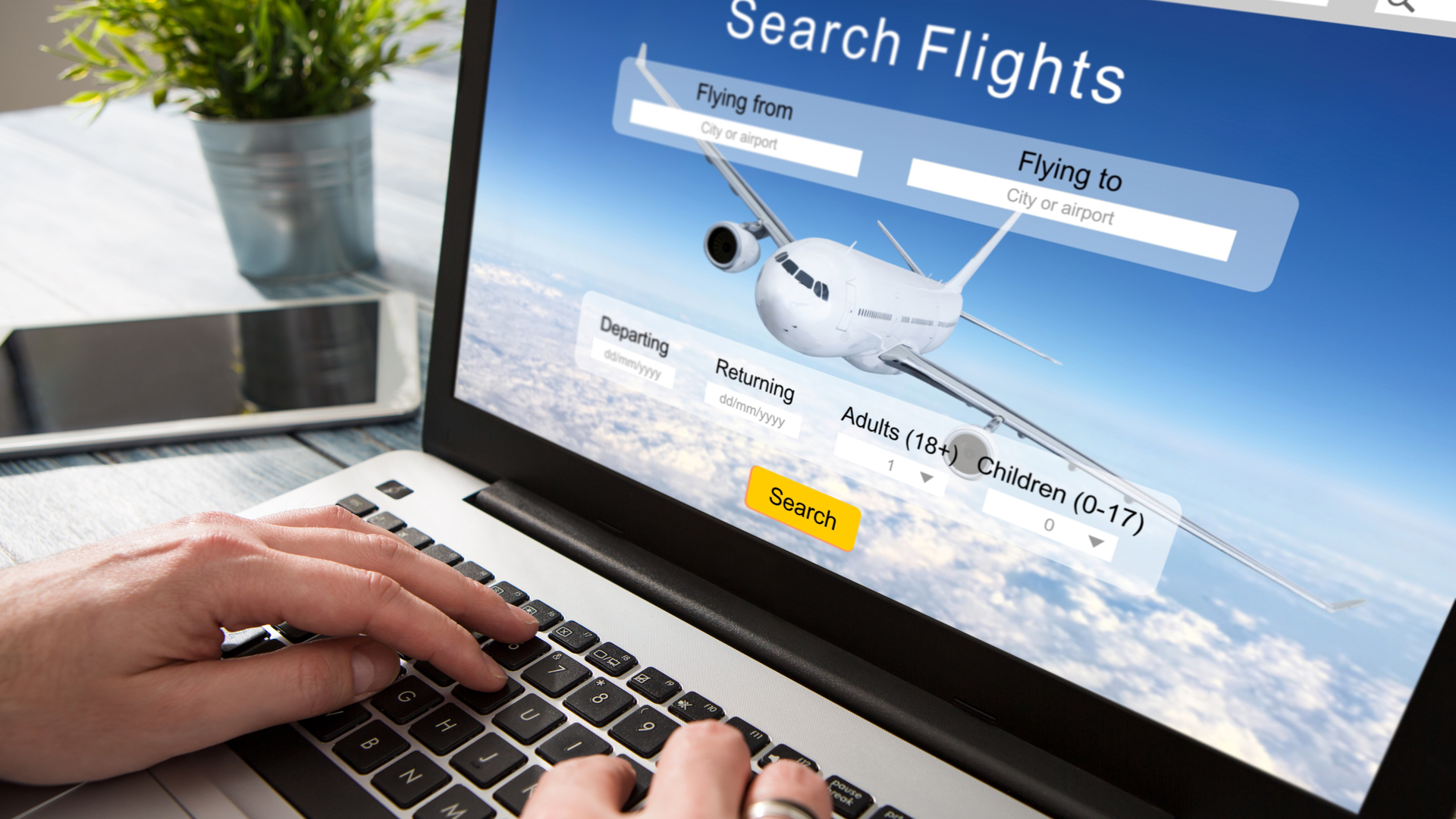Can using a VPN when booking flights really make your tickets cheaper?
Short answer...yes! See how to save money on cheaper flights using the wonder of a VPN


Get all the latest news, reviews, deals and buying guides on gorgeous tech, home and active products from the T3 experts
You are now subscribed
Your newsletter sign-up was successful
Using the best VPN (or virtual private network) effectively makes you appear to be someone else, in another location. That means not only is it a great way to keep your identity and data secure when online and get around geo-restrictions, but it could also save you money on flights.
"How can I save money on flights using a VPN?" we hear you ask. It's because flight comparison sites and airlines appear to be quite devious clever these days. After you check a price then go back to it later you may find it's gone up. Yup, they'll put the price up, not because of selling more seats, but to keep your interest and make you think you need to buy right away. A VPN can stop that.
How a VPN can stop airlines overcharging you
Airlines and comparison sites will use cookies, a marker that downloads to your device, so they can recognise you when you return to the site. They can then adjust prices to suit. Airlines and comparison sites don't confirm this is real or that they do it. In fact some of them, like Skyscanner, actively state that they don't do this. And we're not in a position to prove or disprove otherwise.
However, what has been confirmed by some airline revenue management software providers, is that they do use 'dynamic pricing'. That means one person might get a certain price while another gets a different one. This is based on things like user location, previous flight data, shopping trends, customer accounts and plenty more besides.
Currently each airline has 26 fare classes. Factors like logging in from a Mac, or an affluent area, could mean prices go up. Or if you're booking a leisure route during school holidays you may end up paying more.
How can a VPN save me money on flights?
A VPN is able to mask your location so you appear somewhere else, meaning you can fight back against this dynamic pricing to make it work for you.
By trying different locations as the place you're buying from, via a VPN, you can check out the variations in prices to find the cheapest option to suit you.
For example, we've seen that using server locations like the Netherlands to book flights can save you money. It's not always huge amounts but if you're doing it regularly, or for whole families, these savings can add up.
What is the best VPN for cheap flights?
One of the top performing overall VPNs is ExpressVPN, which offers lots of international servers, high-speed connections and great 24/7 live chat customer support. The wide variety of locations is great for testing out prices all over the globe. That speed is handy as it'll let you connect to another server faster than a lot of other VPNs out there.
Another big appeal of ExpressVPN is that its clients, aka apps, work really well. They're minimally designed and easy to use meaning you can change location and reconnect in just two clicks when using a computer, for example.
There are also free VPN options out there but expect slower connections, fewer location options and limited data access in most cases. So not ideal if you want a all-singing all-dancing VPN for lots of uses, but could be plenty if it's just saving money on your flights that you're concerned about.
Is a VPN worth it for flight savings?
You will have to balance out the cost of a VPN and the number of flights and savings you are set to make in a year to see if you make a saving. But even if that's minimal you still have a VPN for a more secure connection to protect your identity and data. If you are flying abroad and connecting to potentially threatening open Wi-Fi at hotels, airports and cafes, this can keep you secure too.
A VPN is also a great way to appear to be back home so you can still access your TV shows that would otherwise be geo restricted to the location it comes from.
Read more:
- Are VPNs legal? (Spoiler alert...yes)
- Big streamer? Discover the very best Netflix VPN options
Get all the latest news, reviews, deals and buying guides on gorgeous tech, home and active products from the T3 experts
Luke is a freelance writer for T3 with over two decades of experience covering tech, science and health. Among many things, Luke writes about health tech, software and apps, VPNs, TV, audio, smart home, antivirus, broadband, smartphones and cars. In his free time, Luke climbs mountains, swims outside and contorts his body into silly positions while breathing as calmly as possible.
